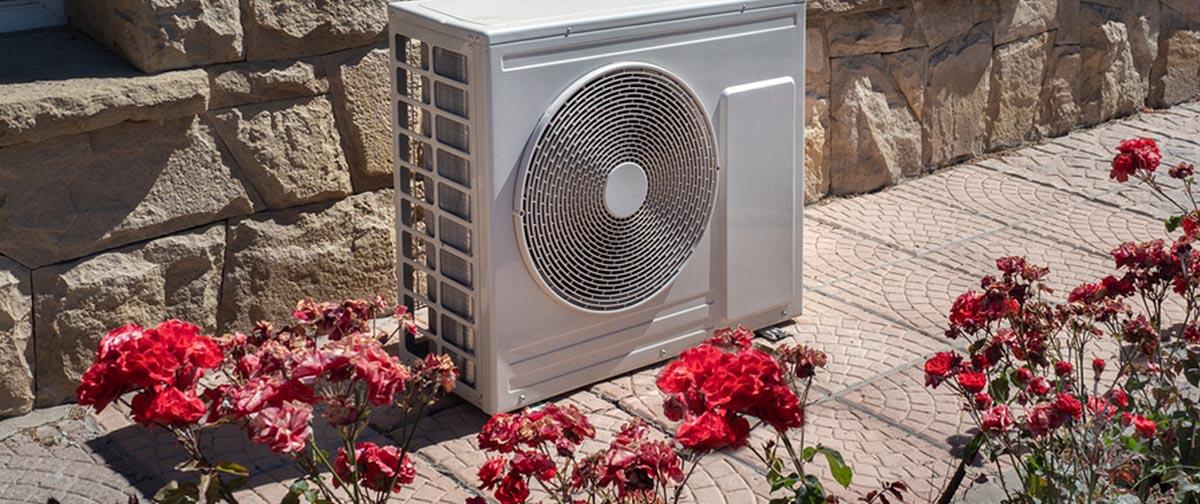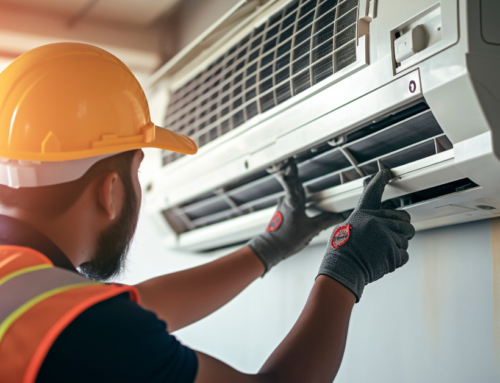However, there’s another choice that’s becoming more common: mini splits. In fact, mini splits are now used in significantly more homes worldwide than central air.
When considering central AC vs a mini split for your home, there are several key things to keep in mind. We’ll break down the key areas of deciding between central AC vs mini splits and the pros and cons of each.
#1: Efficiency
Mini split units use inverter technology, allowing them to run with little energy. They also use variable-speed compressors so they can run as efficiently as possible. Central AC units typically have just one or two speeds, so they have to turn on and off more frequently.
Efficiency is measured by the Seasonal Energy Efficiency Ratio (SEER). Central AC units are required by law to have a minimum SEER rating of 13, although the average unit ranges between 15 and 18 SEER, which is considered by the Department of Energy as mid-range for efficiency.
Mini splits are required to be a minimum of 15 SEER, but more systems average between 20 and 25, which is considered high efficiency.
#2: Cost
The cost of either solution can vary greatly depending on the size of your home and the efficiency of your unit.
If your home has existing ductwork, installing a central AC will be lower in cost than mini splits — depending on how many you need to install. If you’re doing an entire house, mini splits will be more expensive upfront. However, many homeowners find that they realize savings in energy bills over time with mini splits that create a lower total cost of ownership (TCO).
If your home does not have existing ductwork, the costs for installing central air will be much higher.
#3: Capacity
Another place where there is a significant difference between central AC vs a mini split is in capacity. Central AC units generally start at 2 tons (24,000 BTU) and can go as high as 8 tons (96,000 BTU). Mini splits range from 0.75 tons (9,000 BTU) up to 8 tons (96,000 BTU).
Mini splits give you flexibility in choosing the unit that provides the exact amount of cooling power you need. Central AC units are great for cooling large homes, but not be a good fit for smaller homes.
#4: Expected Lifespan
When comparing central AC vs a mini split, one place where central air units will excel is in expected lifespan. Most central air units will last between 20 and 25 years while mini splits have an average lifespan between 15 and 20 years.
#5: Power Consumption
Power consumption is an offshoot of efficiency. The more efficient a unit is, the less power it will consume. Because mini splits are almost always more efficient than central AC, they will consume less energy.
Another key factor in central AC vs a mini split is that central AC will generally have to run for longer periods. While a mini split puts cool air directly from the unit into the room, central AC has to pass cooled air through ducts. According to Energy Star and the US Department of Energy, 20-30% of cooling capacity is lost when passing through ducts. This results in higher energy usage (and costs) to make up for lost cooling power.
#6: Installation Difficulty
Mini splits do not require ductwork. If you have an older or historic home, the time and cost of installing ductwork can be especially prohibitive (or may not be possible at all). Having to put in ductwork may also require additional labor, such as opening up walls and ceilings and then having to repair and repaint.
Mini splits are faster and easier to install. Some people even handle the installation themselves. Central AC always requires professional installation. Central AC installation typically takes about a day to install while mini splits can be ready to use in just a few hours.
The Pros and Cons of Central AC vs Mini Splits
Besides the items listed above, there are also other pros and cons to think about that may help you with your decision.
Pros of Ductless Mini Splits
- Zone control of cooling
- Consistent temperatures
- Less energy use/lower operating costs
Cons of Ductless Mini Splits
- Higher upfront costs
- May require additional electrical work
- Some people do not like the aesthetics of wall units
Pros of Central AC
- Lower upfront costs (if you have ducts in place)
- Provides consistent temperatures throughout homes
- No units are visible inside the home
Cons of Central AC
- Lack of zone control
- Ducts need cleaning over time
- Higher energy use/operating costs
Day & Night Mechanical Solutions in Denver, CO can evaluate your home and help you decide whether central AC or mini splits are the best option for you. Contact us today at 303.936.2696 or book an appointment online.



